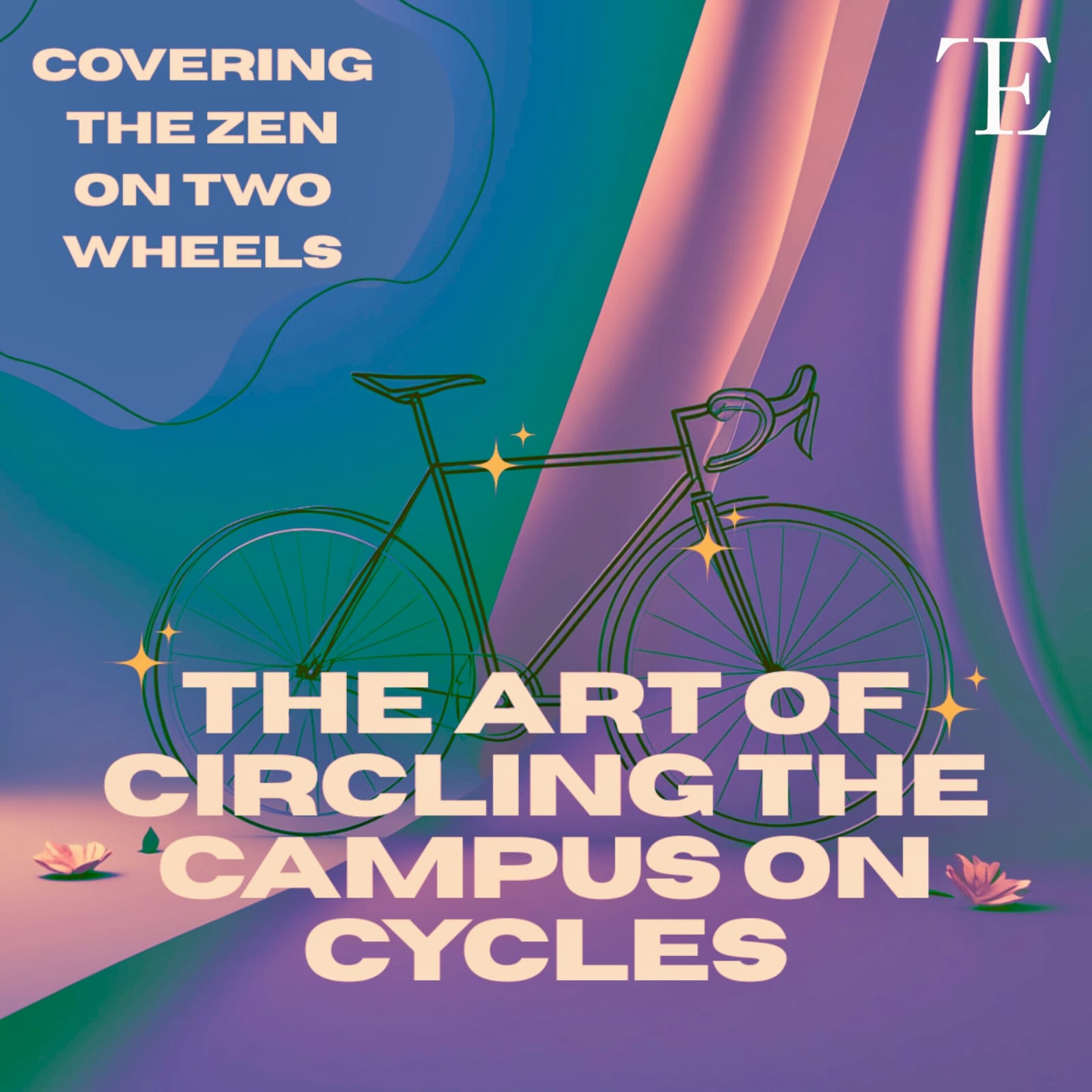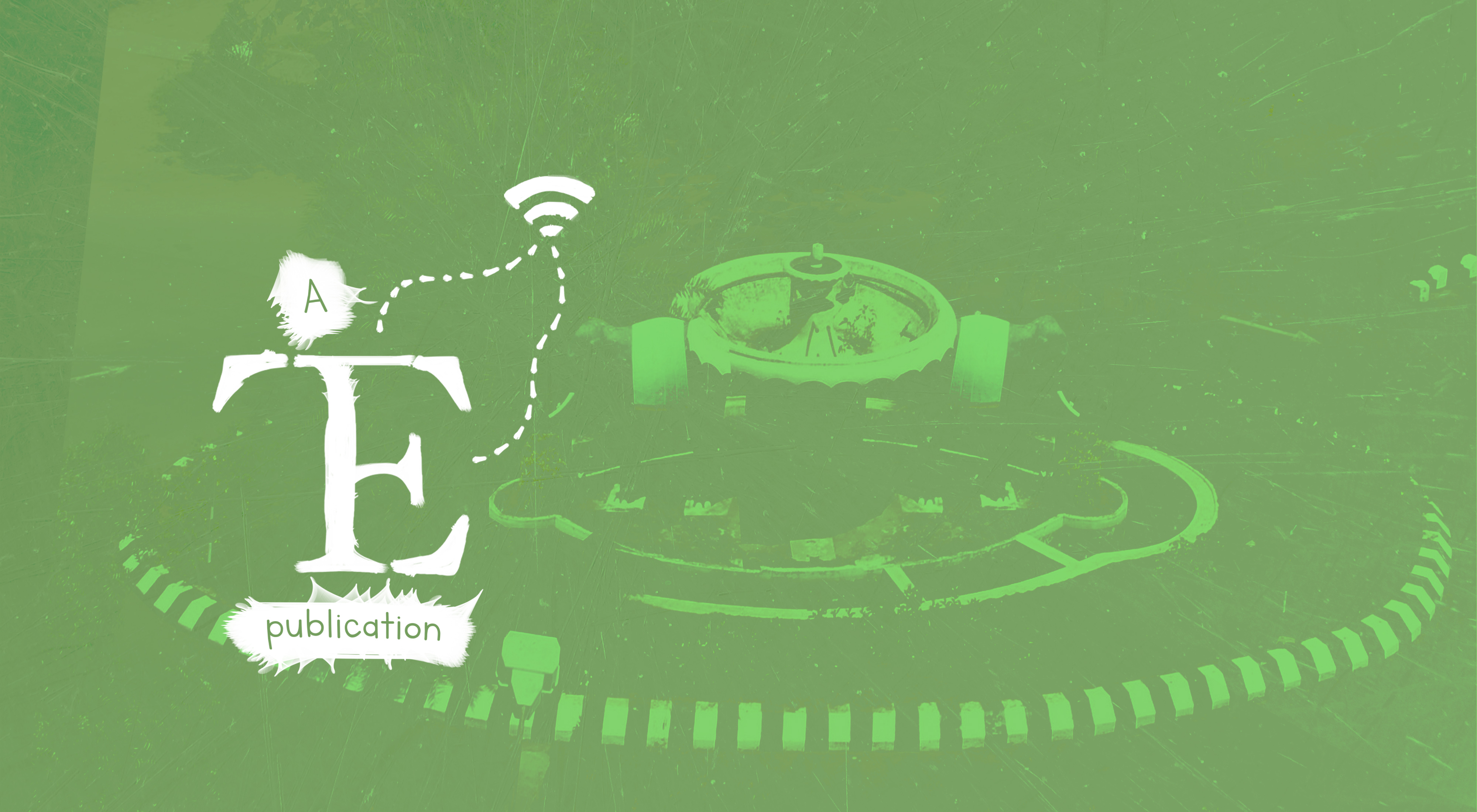The first thing everyone gets (or at least should get) when they arrive at this lush green campus for the first time is – the bicycle. From that point onwards, it becomes our best friend – carrying us to our beloved lecture halls, the most-welcoming Himalayas, thereby just sliding in a tour of our electro-green jungle, or just taking us safely to our respective hostels. But hey, I’m pretty sure many of us have returned the favor by carrying it to the cycle service centers as a token of gratitude. What if I told you that you can return that in such a way that it’s received well?
Friendship gets a sense of balance when it’s being cared for from both sides. The case with our bicycles is no exception. A fairly simple way is to just check in on it – if it’s feeling well, if it has enough air today, if it is in a good mood with all the screws tight, or if there’s any miscommunication between the two of you. Beware! It can even sulk so much because of its deflated tyre or a broken stand, and we might not know until we do. Therefore, keeping the best interests of you and your bicycle, and the entire community of our campus – including all the plants, animals, and humans- I have come up with certain “zen” techniques to enable better communication between you two.
Before coming to maintenance, I feel it is important to make sure that the essential parts of your bicycle are in place and are in good condition. Now, you’ll be all good cycling with confidence, some comfort, and a sense of peace with your friend. If you’re lucky, you’ll get to experience a “happy two weeks” with everything sorted out as far as your bicycle is concerned. What’s next? A deflated tyre (I like to think of it as its way of asking for a meal). You just have to walk up to your nearest cycle shop or to those hostels that have a dedicated bicycle pump for your use.
Life isn’t always so simple, is it? What if you just embarked on an amazing adventure past GC to, say, the lonely MDS building for some work or just to visit a popular(?) place nearby, and your cycle started sulking there? How do you inflate its tires there? Would you walk from there to some hostel, say Mandakini, just to fill some air, or would you just stand there in hopes of the tires getting magically filled up? It’s your call to take.
There’s this popular proverb which says “Prevention is better than Cure”. We probably will not face a situation like that if we take necessary steps to avoid it ; And what are the necessary steps, you ask?
Firstly, this is just one single case of tires getting deflated. There could be some more deadly cases where no one probably wants to see themselves in – like brakes not working properly which can lead to unfortunate collisions, the domino effect that happens when your cycle falls off because of its ineffective stand and you have to lift the other cycles and keep them in place for the sake of being humane – all while stalling on your schedule.
Secondly, it all boils down to identifying the problem on time and fixing it quickly. How do you identify it? Well, most problems are evident even when you’re driving in zen mode. You could also check while locking or unlocking your cycle from time to time. How do you fix it? We have cycle shops at two different locations on campus – one near Sangam Ground and the other near the Central Library; you could approach any of them for most problems you may face with your cycle. I’ve also seen students enthusiastically taking charge of their own cycles and trying to fix them themselves using some tools. Although I’d not recommend it – especially for people who own geared cycles-it’s a daring activity to flex your skills.
Finally, let me assure you that you can still, unfortunately, get into difficult situations like the ones I’ve mentioned earlier, but if you follow proper maintenance techniques, the chance would be very less, so less that you can just forget about it and focus on whatever else you’re doing. So what if you get stranded with a deflated tire 1km from the nearest cycle shop? Find out creative ways to outsmart the situations and spread the word!
Our safety and comfort aren’t guaranteed – it can never be, but it can always be improved. Proper maintenance of one’s cycle is but one part of it. Another part is the etiquette that should be followed when cycling/parking for enhanced safety, peace of mind, and an overall better driving experience.
I’ll list down some here just in case anyone forgets these – driving to your left (at least in India) will greatly reduce unnecessary conflicts, and communicating with your fellow cycle enthusiasts when making a turn or a stop (like using hand signals) would help in mutual understanding on the roads. It’s better not to drive parallel with your friends, especially if there are more than 2 cycles. This can lead to congestion and unintended blockage of roads. Avoiding sudden moves or breaks could turn potentially catastrophic events into something much less drastic; we’re just making sure we’re predictable here so that our communication with the fellow drivers is fairly seamless.
IITM has a speed limit of up to 20km/hr inside the campus. It used to be 30 km/hr before, until an accident with one of our blackbucks on the campus. IITM has also imposed heavy fines (around 10,000 INR) on vehicles that violate the speed limit. Well, just because we’re cyclists doesn’t make us immune to accidents, including the ones caused by overspeeding. I understand that with cycles, it’s not practical to touch high speeds as seen in cars and bikes; It’s just to urge ourselves to be more conscious of our speed.
I can’t really finish talking about cycling etiquette without this – Parking our cycles in designated spots would greatly help a lot navigation and maintain a sense of order. Just reminding you that there are around 10,000 students on campus, and almost all of them have their own cycles. We can’t have all these cycles scattered everywhere like some kind of garbage; It wouldn’t look good on you as its friend either.
If you ask me where the zen is here, I’d say that it’s in the effortless-ness of executing the necessary maintenance techniques and keeping an eye on how your two-wheeled friend is feeling. It can be hard at first, but, hey, almost everything is hard at first! This could give you some peace of mind in one aspect of your campus life and might as well spread to other areas of your life – even amidst the hustle and bustle. After all, your cycle is going to be your constant companion throughout your insti life-sticking by your side through and through. It is going to carry you through the highest of highs and lowest of lows- ever so patient, ever so unswervingly loyal. And all it asks in return is a little bit of love, affection, and an oil change now and then.
Written by: Rajiv Sukesh
Edited by : Venkata Sai Vishwesvar SV




